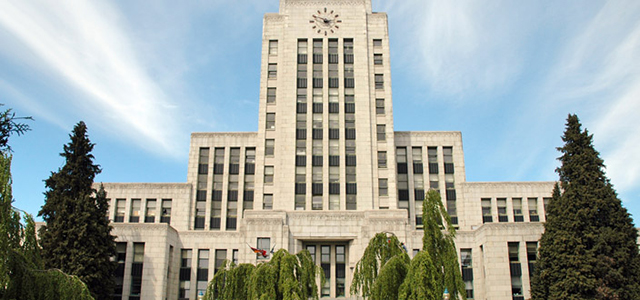
 Vancouver City Council approves 2025 operating and capital budget with 3.9% property tax increase
Vancouver City Council approves 2025 operating and capital budget with 3.9% property tax increase
Vancouver City Council has approved an operating budget for 2025 totalling $2.34 billion for an overall property tax increase of 3.9%.
The property tax increase is driven by 1% for additional infrastructure renewal and 2.9% toward funding City services. Utility fees increased by 18.2%, including a 50% increase in sewer charges by Metro Vancouver comprising costs associated with the North Shore Wastewater Treatment facility, and accounting for inflation to cover higher operating costs to keep the same services levels.
The approved 2025 Capital Budget is $880 million and supports delivery of initiatives outlined in the 2023-2026 Capital Plan, which provides a total of $3.8 billion in infrastructure investments to improve Vancouver’s livability, sustainability and resilience.
The 2025 Capital and Operating Budgets include $79.6 million allocated to climate-supporting initiatives, including active transportation projects, green infrastructure and zero-emission building programs, as part of the Climate Emergency Action Plan PDF file (23.9 MB) and Climate Change Adaptation Strategy.
The updated final budget documents will be made available at vancouver.ca/budget2025. In the meantime, the 2025 Draft Budget PDF file (11.5 MB) can be viewed online and draft amendments are included below for your reference.
Projected average annual increases
The 3.9% per cent property tax increase and 18.2% increase in utility fees results in the following average annual increases for 2025:
- $54 for a condo or strata unit (assessed at $806,000), with an additional $78 increase in utilities fees.
- $149 for a single-family home (assessed at $2,209,000), with an additional $386 increase in utilities fees.
- $286 for a business property (assessed at $1,268,000), with an additional $377 increase in utilities fees.
Vibrant Vancouver Mid-Term Progress Report
On December 3, 2024, a mid-term update on progress made on City Council’s strategic priorities for 2023-2026 PDF file (490 KB) was also presented to Council.
“These significant advancements show our commitment to making Vancouver a sustainable, vibrant and inclusive city,” said Ken Sim, Mayor of Vancouver. “The 2023-2026 strategic priorities will continue to guide our efforts to enhance quality of life, for all residents. We will continue to work towards creating a city where everyone can live, work and thrive.”
Notable outcomes include:
- 27 destination events. Working with Destination Vancouver and Vancouver Hotel Destination Association, supported 14 sport and 13 cultural destination events in 2024 with a $117 million economic impact.
- Chinatown revitalization. $2 million annual investment, street parking rate adjustments to increase traffic, a new City Hall satellite office, and 45% increase in micro-cleaning services in area.
- New multiplex program. Adopted multiplex zoning, resulting in 330 permits in the first year of adoption and paving the way for over 1,000 new homes.
- Permitting improvements. Eliminated permit requirements for low-density housing projects by 65%. Straightforward renovation permits are now processed within three days on average. Eliminated 65% of permit requirements for low-density housing projects.
- Licensing transformation. Introduced online business licence applications, resulting in an 85% reduction in average processing time. Modernized liquor policy to lift moratorium on new and expanded liquor establishments and permitted sale of wine and beer in qualifying grocery stores.
- Water and sewer growth. Delivered 5.3 km of new water and sewage pipes and 12.5 km of separations for sanitary and storm sewer lines to support population and development growth.
- Public safety enhancements. An additional 100 VPD officers, increased walking patrols and more agile response capabilities, as well as additional nurses to support public safety and security. Vancouver Fire Rescue Services became the first fire service in North America to transition to PFAS-free turnout gear, reducing cancer risk for firefighters.
To learn more about progress made on Council’s strategic priorities, view Vibrant Vancouver: City Council’s Strategic Priorities mid-term progress report PDF file (7.6 MB).
Background
On December 3, 2024, the 2025 Draft Operating and Capital budgets were presented to City Council for information as a starting point for discussion and engagement with Council to help align the multi-year planning with Council’s priorities.
On December 10, 2024, City Council approved the 2025 Operating and Capital budgets.
The actual tax notice for each property owner will differ from the above average amounts and will depend on the assessed value of the property, as well as the change in assessed value of that property relative to the average change in that property class. A property’s assessed value is determined by BC Assessment.
These estimates reflect the City portion of taxes only. The amount due on a property owner’s tax notice will also include utility fees, Provincial school taxes, and taxes levied by other taxing authorities including TransLink, Metro Vancouver, BC Assessment, and the Municipal Finance Authority.